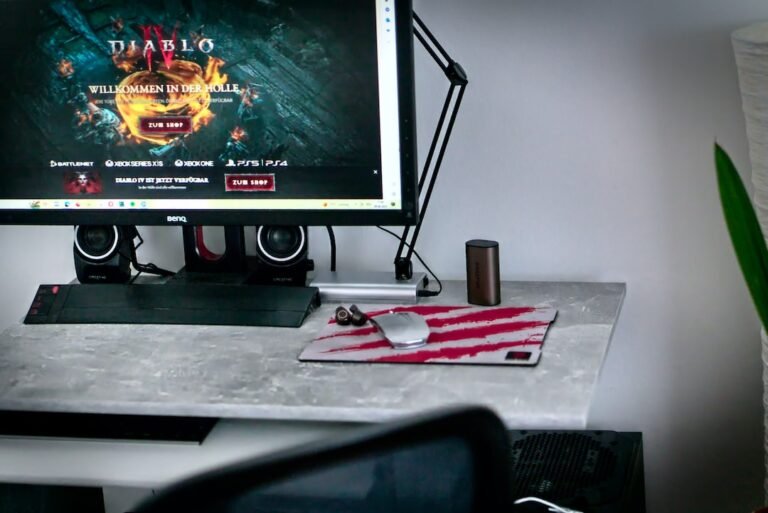Introduction
Teenagers are at a stage in their lives where they crave independence and want to explore the world on their own terms. As parents, it can be challenging to strike a balance between allowing our teenagers to gain their independence while ensuring their safety and well-being. This is where parental controls come into play. In this article, we will delve into the world of fine-tuning parental controls to promote teenager independence.
Why are parental controls important?
Before we dive into the specifics of fine-tuning parental controls, let’s address why they are essential in the first place. As our teenagers venture into the digital realm, they encounter a myriad of potential risks and challenges. From accessing inappropriate content to engaging in online bullying or becoming victims of cybercrimes, the online world presents many dangers.
Parental controls act as a safety net, helping us protect our teenagers from these risks. By setting boundaries and managing their online activities, we can ensure their safety while also nurturing their independence.
Finding the right balance
Now that we understand the significance of parental controls, the next step is finding the right balance. It’s crucial to strike a balance between protecting our teenagers and allowing them to explore the world on their terms. Over-restricting their online activities can hinder their personal growth and development, while being too permissive may expose them to unnecessary risks.
It’s important to involve our teenagers in the process of establishing parental controls. Engage them in discussions about their online activities, educate them about the potential risks, and together, determine the boundaries that need to be in place. This collaborative approach fosters a sense of ownership and responsibility, empowering them to make informed choices.
Responsible online behavior
One of the key aims of parental controls is to promote responsible online behavior among teenagers. By teaching them the importance of digital etiquette, privacy, and respect, we can equip them with the necessary skills to navigate the online world responsibly.
When fine-tuning parental controls, consider incorporating features that focus on monitoring and guiding their online behavior. This might include setting time limits for screen usage, blocking access to specific websites or apps that promote harmful content, and monitoring their social media activities for signs of cyberbullying or inappropriate behavior.
Open communication is key
An essential aspect of fine-tuning parental controls is maintaining open lines of communication with our teenagers. Establish an environment of trust and encourage them to approach you if they encounter any challenges or feel overwhelmed by their online experiences.
By fostering open communication, you can address any concerns, provide guidance, and work together to make informed decisions about adjusting parental controls as they grow and mature. This ongoing dialogue ensures that as their independence increases, so does their digital literacy and ability to make responsible choices.
Conclusion
As parents, it is our responsibility to embrace technology’s benefits while minimizing its potential risks for our teenagers. Fine-tuning parental controls allows us to strike a balance between their desire for independence and their need for safety. By involving them in the process, promoting responsible online behavior, and maintaining open lines of communication, we can equip our teenagers with the tools they need to thrive in the digital world.
FAQ
1. What is the first step in setting up parental controls for teenagers?
The first step in setting up parental controls for teenagers is to have an open and honest conversation with them. Engage in discussions about their online activities and educate them about potential risks. Together, establish boundaries and guidelines that promote their safety while respecting their need for independence.
2. How can parental controls promote responsible online behavior?
Parental controls can promote responsible online behavior by setting limits on screen time, blocking access to inappropriate content, and monitoring social media activities. Regularly discussing responsible online behavior and digital etiquette with your teenager also contributes to their understanding of how to navigate the online world responsibly.
3. Can I adjust parental controls as my teenager grows older?
Yes, it is important to adjust parental controls as your teenager grows older. Their need for independence will evolve, and their online activities may change. Regularly assess the effectiveness of the existing controls and make adjustments accordingly, always involving your teenager in the decision-making process.
4. How can I ensure open communication with my teenager about their online experiences?
To ensure open communication, create an environment of trust where your teenager feels comfortable discussing their online experiences with you. Be open-minded, non-judgmental, and willing to listen. Encourage them to approach you with any concerns or challenges they encounter online, and provide guidance and support when needed.
Further Reading
| Website | Description |
|---|---|
| Navigating the Digital Landscape: A Guide for Parents of Teenagers | |
| Navigating secondary school | Provides resources and advice for families and educators on promoting safe and responsible internet use for teenagers. |




